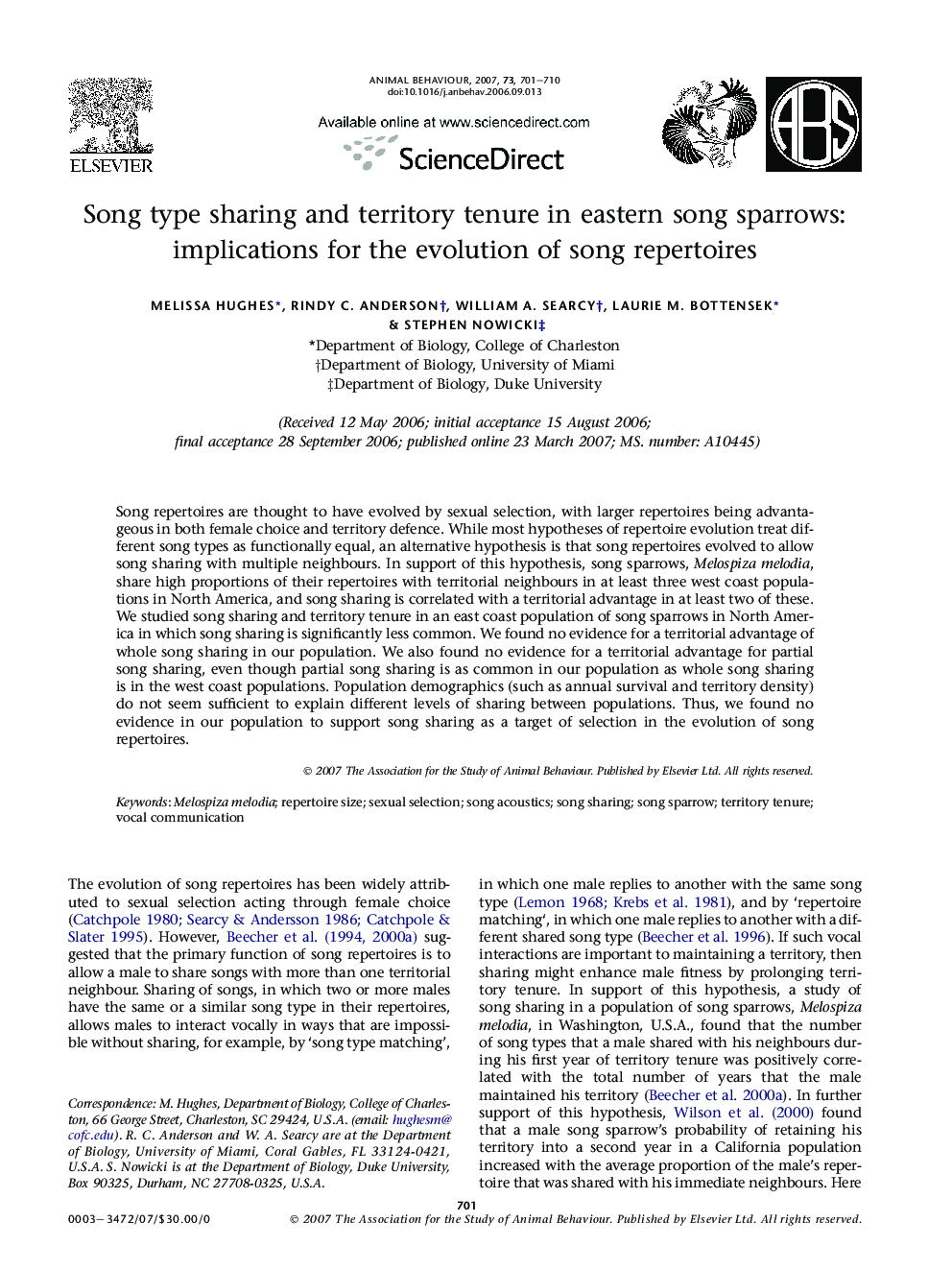| Article ID | Journal | Published Year | Pages | File Type |
|---|---|---|---|---|
| 2419024 | Animal Behaviour | 2007 | 10 Pages |
Song repertoires are thought to have evolved by sexual selection, with larger repertoires being advantageous in both female choice and territory defence. While most hypotheses of repertoire evolution treat different song types as functionally equal, an alternative hypothesis is that song repertoires evolved to allow song sharing with multiple neighbours. In support of this hypothesis, song sparrows, Melospiza melodia, share high proportions of their repertoires with territorial neighbours in at least three west coast populations in North America, and song sharing is correlated with a territorial advantage in at least two of these. We studied song sharing and territory tenure in an east coast population of song sparrows in North America in which song sharing is significantly less common. We found no evidence for a territorial advantage of whole song sharing in our population. We also found no evidence for a territorial advantage for partial song sharing, even though partial song sharing is as common in our population as whole song sharing is in the west coast populations. Population demographics (such as annual survival and territory density) do not seem sufficient to explain different levels of sharing between populations. Thus, we found no evidence in our population to support song sharing as a target of selection in the evolution of song repertoires.
